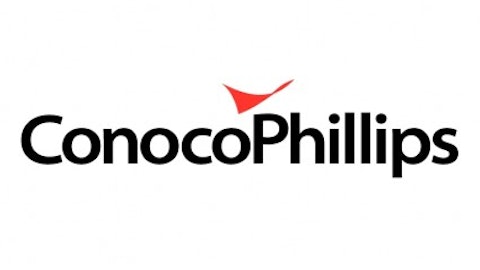There are different ways in which the value of a stock can grow. The most typical example is when the value of the whole company increases over time due to growing cash flows and earnings.
Another one, related to share buybacks, is when the company is sliced into fewer pieces – fewer shares outstanding – and each individual share is worth more because it’s entitled to a bigger percentage of the company’s earnings and cash flows.

Creating value through buybacks
According to Warren Buffett, who understands a thing or two about capital allocation, buybacks can be a great thing for investors when the right conditions are in place. From Berkshire Hathaway Inc. (NYSE:BRK-B)‘s 2011 shareholder letter: “Charlie and I favor repurchases when two conditions are met: first, a company has ample funds to take care of the operational and liquidity needs of its business; second, its stock is selling at a material discount to the company’s intrinsic business value, conservatively calculated.”
Following these guidelines, Buffett has designed for Berkshire Hathaway Inc. (NYSE:BRK-B) what is arguably the most efficient and transparent buyback policy around. The company will repurchase shares provided it has more than $20 billion in cash at hand for different uses, and the stock must also be trading at an attractive valuation, which Buffett has defined as a price to book value ratio below 1.2.
Buffett has only been able to repurchase small amounts of stock under Berkshire Hathaway Inc. (NYSE:BRK-B)’s strictly defined policy, but he has provided valuable principles to keep in mind when analyzing other companies and their repurchase programs.
Two businesses are better than one
With more than $703 billion in assets under management and administration, Ameriprise Financial, Inc. (NYSE:AMP) is one of the leading financial services companies in the U.S. Over the last few years the company has expanded its asset management operations via acquisitions like J. & W. Seligman in 2008 and Columbia Management in 2010.
Ameriprise Financial, Inc. (NYSE:AMP) generates nearly equal amounts of income from its insurance and asset management segments nowadays, and this provides a nice combination for the company. While asset management generates high returns and low capital requirements, the insurance business produces recurrent and stable cash flows.
The business is performing strongly; operating net revenues increased 17% and operating earnings grew by 39% in the last quarter. The stock is reasonably valued with a P/E ratio of 16 and a dividend yield of 2.1%, so management is doing the right thing by aggressively repurchasing stock.
Over the last three years Ameriprise Financial, Inc. (NYSE:AMP) reduced its shares outstanding by more than 20%. In the last quarter alone, the company returned $488 million to shareholders through a combination of share repurchases and dividends.

Source: YCharts
A leading investment bank
Goldman Sachs Group Inc (NYSE:GS) enjoys a leading market position in the global investment banking industry. The company owns arguably the most valuable brand in the business and prides itself on providing its clients with access to some of the smartest people in the world of finance.
Goldman Sachs Group Inc (NYSE:GS) has a complex business model; large trading operations and a changing regulatory landscape mean that investors in the company are always exposed to a considerable amount of risk. But the business is firing on all cylinders lately. Earnings per share more than doubled on the back of a 30% increase in revenue during the last quarter.
The bank is trading at a price-to-book value ratio of 1.1, so even if it never returns to pre-financial crisis valuations it still has plenty of upside room from current valuation levels.
Goldman Sachs Group Inc (NYSE:GS) has been recurrently repurchasing stock, and in the last quarter the company repurchased 10.5 million shares and has a remaining authorization under its current repurchase program for 75.9 million more shares.

Source: YCharts
A high-quality credit card
The company is not particularly cheap, trading at a P/E ratio near 18, but the valuation isn’t excessive for such a high-quality company either. American Express Company (NYSE:AXP) is performing quite well with earnings per share increasing by 10% in the last quarter and credit performance remaining strong, as the net write-off rate was 2% during the quarter.
The board of directors has approved the repurchase of up to 150 million common shares back in March. The company has been actively repurchasing stock over the last few years and during the last quarter American Express Company (NYSE:AXP) reduced its share count by 5%.
Source: YCharts
Bottom line
Efficient capital allocation is crucial in the financial industry, deciding where money should be put to work in order to maximize its risk-adjusted return is of utmost importance. These three financial bellwethers are finding a compelling buying opportunity in their own shares, and by implementing buyback programs they are creating value for shareholders.
The article 3 Financial Powerhouses Showing You the Money originally appeared on Fool.com is written by Andrés Cardenal.
Andrés Cardenal owns shares of Berkshire Hathaway. The Motley Fool recommends American Express, Berkshire Hathaway, and Goldman Sachs. The Motley Fool owns shares of Berkshire Hathaway.
Copyright © 1995 – 2013 The Motley Fool, LLC. All rights reserved. The Motley Fool has a disclosure policy.





